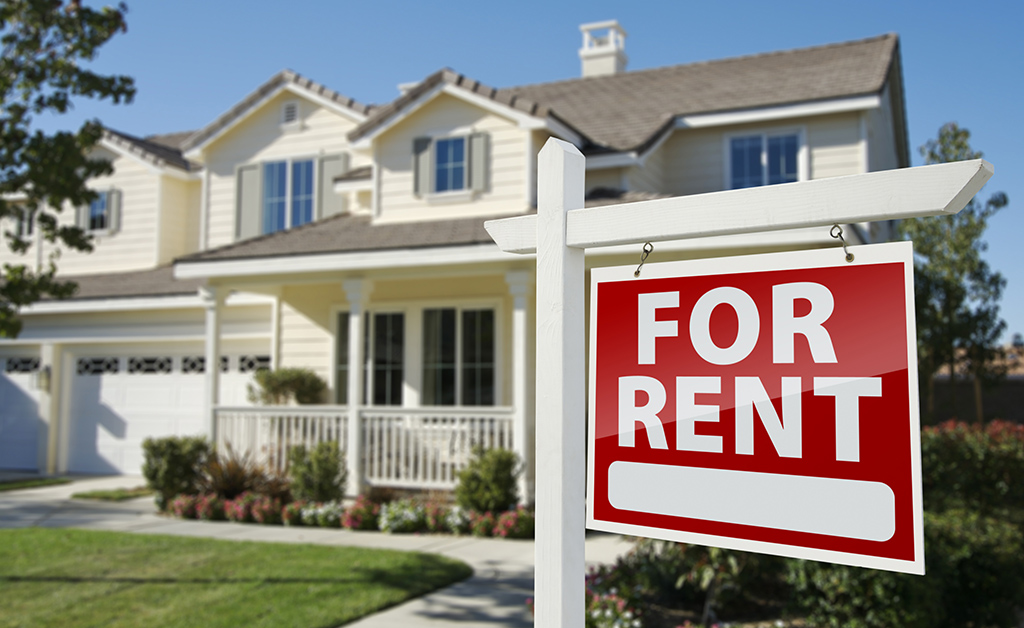Even if you bought your home to live in rather than as an income property, you may end up renting out your house at some point. A contract opportunity on the other side of the country (or the world), a drop in property values that means you want to build up more equity in your home before trying to sell it, or a formal or informal sabbatical might mean you want to rent rather than sell.
Here’s how you can get your house ready for renters. While it may seem like a lot of work and a moderate amount of money, it’s well worth it. Good tenants are attracted to well maintained, trouble-free properties, and good tenants are hopefully the only kind you’ll ever have to deal with.
Start with the exterior
Make sure all your exterior maintenance is up to date. That includes landscaping, raking, gutter cleaning, roof repairs, and checking, cleaning and replacing exterior lights and/or sensors. Test and repair any exterior railings and make sure pathways are safe. Replace any broken interlock.
Get the screens cleaned and the exterior windows washed.
If you don’t have keypad locks, you might want to consider changing the locks for the front, back, and side doors and any mailboxes.
Contact your insurance broker and arrange to switch your policy from homeowners to landlord’s insurance.
If your tenants are going to be responsible for lawn maintenance and snow removal, make sure they’ve got the tools they need to do the job, whether they supply their own or you provide them. If you have a mortgage on your home, let your bank know when you’ll be renting out your house rather than occupying it for the term of the initial lease anyway.
Draw up a condensed list of HOA rules your tenants need to be aware of and abide by. Being caught in the middle of a dispute between the HOA and your tenant is an uncomfortable place to be.
For a bold new look that doesn’t cost a lot or take long, consider painting your front door. Red doors were popular for years and still provide a great “pop” of welcoming color. But increasingly, dramatic black and medium or dark blue doors are trending these days.
Tackle the interior
Start at the top of the house and work your way down. This is the time to declutter in earnest, so plan to make more than one trip to the thrift store to drop off old furniture, toys, clothes, and games, or plan a yard sale or two.
At the very least, you should wash all the walls and ceilings of your home before you put it on the rental market. Deal with potential problem areas that need to be dealt with, whether it’s drywall or plaster repairs, paint touch-ups, or, worst-case scenarios, a leaky pipe or insufficient ventilation.
Remove all your window fittings and wash curtains or blinds. Vertical or wooden blinds may not be removable, but they can still be vacuumed or sponged. Wash the interiors of your windows.
If you can afford to have the interior repainted in neutral colors from top to bottom, do it. And of course, floors, rugs, and both the interior and exterior of all cupboards will need to be cleaned, including the ceiling hood fan. Replace the hood fan filter if necessary.
Check all the appliances that come with the house to make sure they’re in working order and if you can find them, set the manuals aside in a dedicated kitchen drawer. Test and put new batteries in smoke and carbon monoxide detectors and make sure you have working fire extinguishers for each floor.
Get someone in to clean and maintain your furnace and air conditioning system and get someone to take a look at your hot water heater as well. Make sure your electrical panel is properly labeled and display emergency contact information for heating or plumbing emergencies on the interior of the electrical panel. Ensure your tenants know whether and how often they need to change the furnace filters and where they can find them.
If all this seems overwhelming or you find you’re having frequent renter turnover, you might want to consider hiring a property management firm to deal with tenant complaints, repairs, and maintenance. It will cost you 10 to 15 percent of your total rental income, but it may buy you peace of mind. Interview several property managers and ask for references from tradespeople they use as well as other property owners. Getting your house ready for renters marks a new chapter for both you and your tenants to be. By making sure everything’s in good working order before you try to rent it out, you can hopefully attract the best possible tenants and ones who will treat your home as well or better than you.


